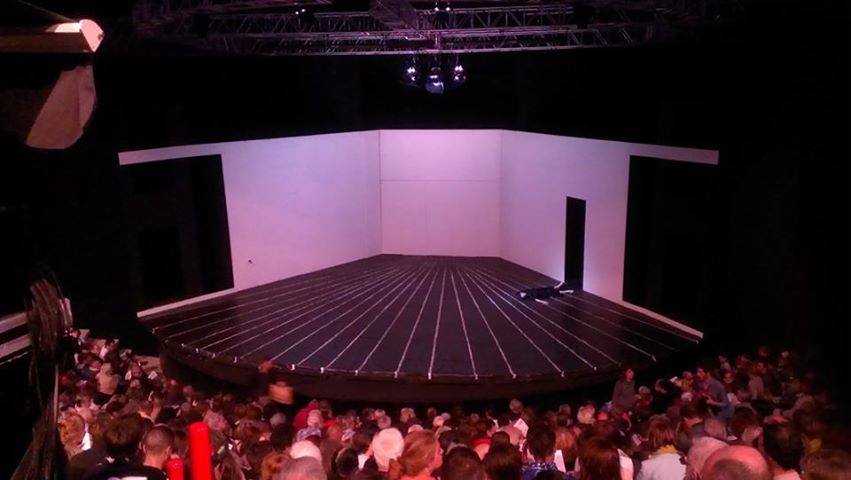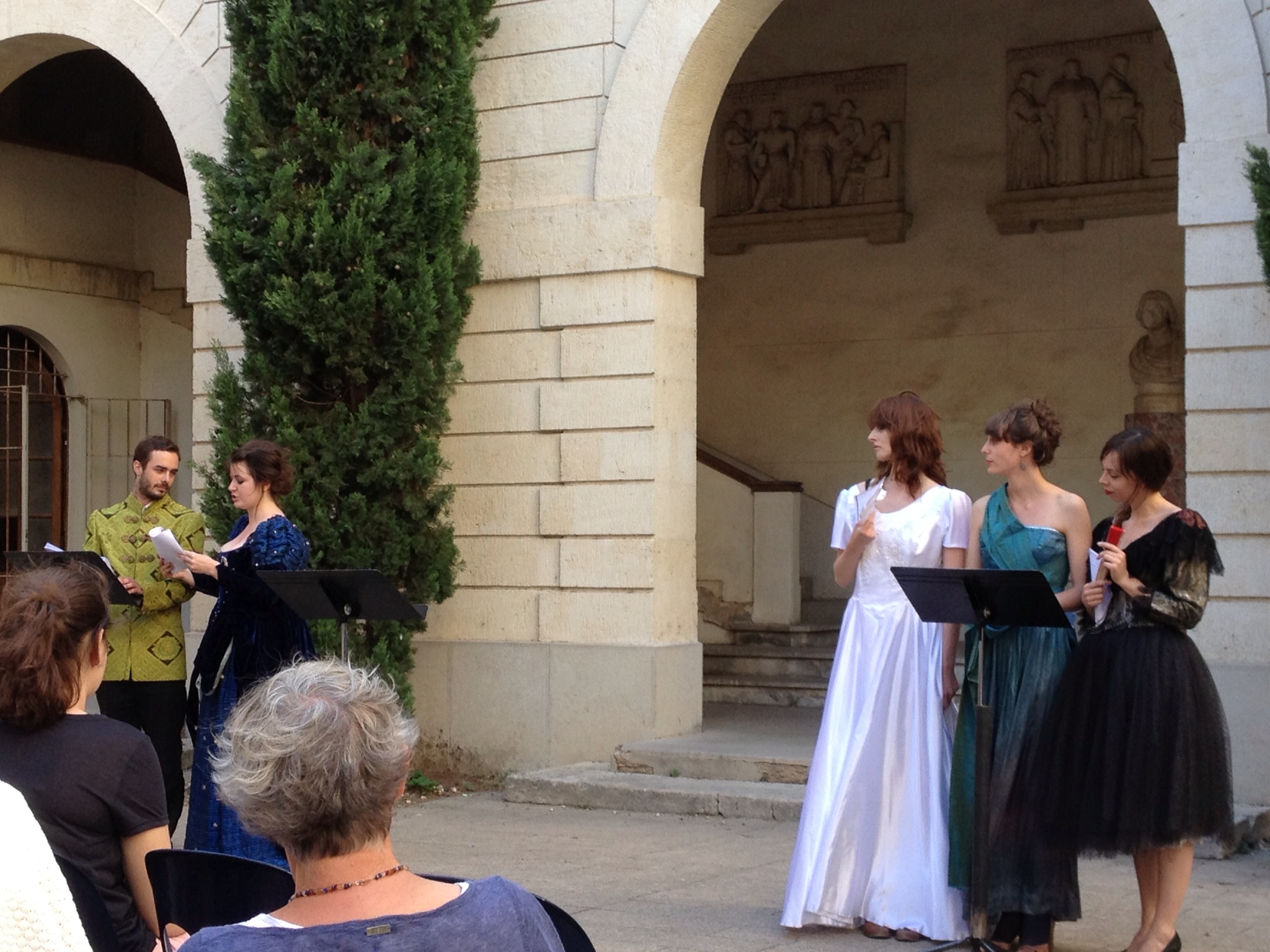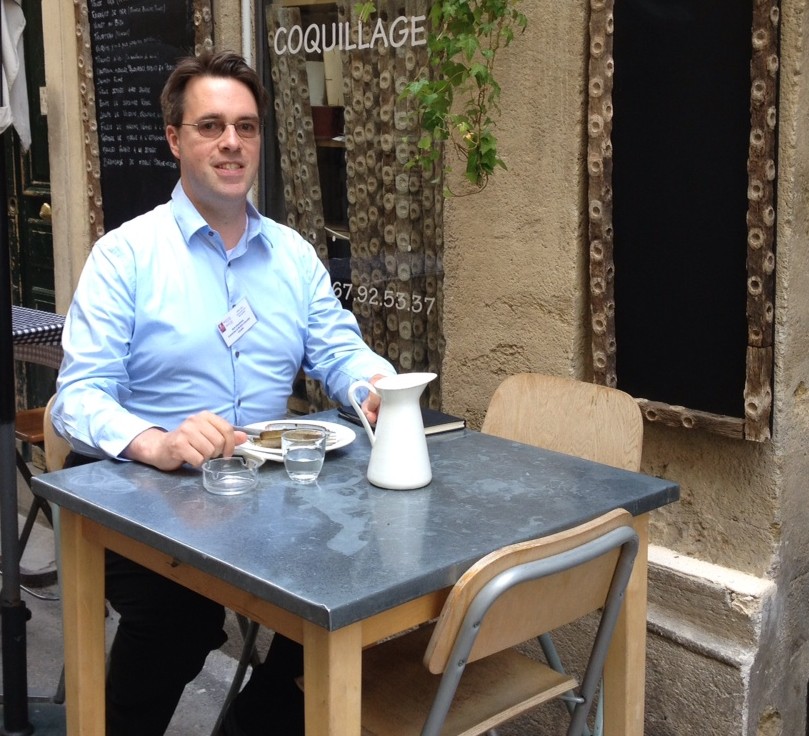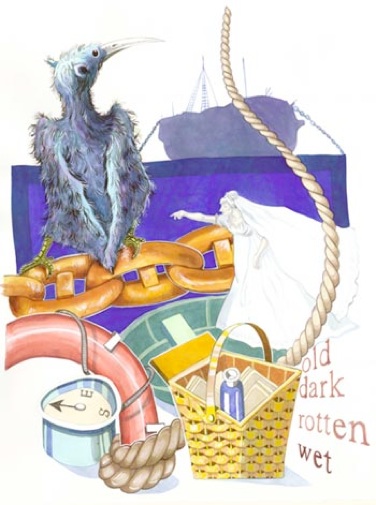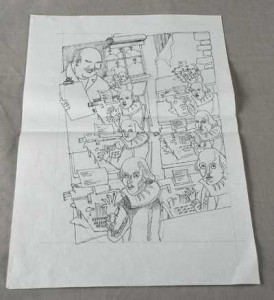Constructivism at an international Shakespeare conference
As a theme I would like to explore in relation to this week’s readings on constructivism, I will mention an international conference I attended this summer. In the sunny Mediterranean town of Montpellier, I was at the European Shakespeare Research Association conference to discuss some findings that involve the digitization of First Folio text happening in Japan. It was an eye-opening experience for me, but in terms of constructive learning, far from the ideals of Piaget, Dewey and Vygotsky. It felt more along the theme of oppression written so evocatively by Freire. Little evidence did I find in France for the Shakespearean sense of freedom (Greenblatt, 2010) and even less for a democracy where everyone can read and have an opinion about the plays (based on the tradition that everyone could understand a commonly spoken language while watching a play). Instead, there was an educated hierarchy represented at the conference, where only certain skill-levels could fully understand the deeper meaning of Shakespeare’s words. The professors at the top of this food chain had reputations to uphold, insisted upon their (usually) singular way of reading the text, and while others convened to listen to lectures, those on top did not seem to be too willing to construct ideas about the plays (unless of course they had a book on the same topic as someone else). The closing plenary speaker articulated my growing suspicion that I had come to the wrong place to learn about the latest ideas in Shakespeare scholarship, by showing a slide of a related text (Robert Greene’s Groatsworth of Wit) and declaring that “anyone who doesn’t know what this is doesn’t deserve to be in this room.” As the French would say, incroyable!
Romanticism often gets looked down upon, even though for Dewey it was a major influence. At ERSA, the Germans seemed to get blamed for perpetuating myths about Shakespeare, yet the Berliner Ensemble’s production of Richard II was inspired theatre, one of the highlights of the conference. There is a connection here to be sought with John Dewey and his fondness for the Romantic poets, such as Coleridge (Garrison, 1999, para. 21) in forming his philosophy of education. One person’s delights can lead to higher levels of thinking about other topics in their lives. Contrasting to these enlightening moments glanced at in Jim Garrison’s entry on John Dewey is his growing mistrust of Social Darwinism, which he saw as control via an undefined notion of being fit to survive. Happily for most readers, Dewey was not a racist, and perhaps for the American readers that he also had reservations about Soviet Communism. Those who try to impose order on a society are no better than the oppressive “bankers” that Freire writes about in Pedagogy of the Oppressed. It will be important to remember that English burnt down the Globe Theatre the second time it was built, part of the Reformation, and if it wasn’t for other countries noticing how enjoyable Shakespeare’s plays are, there would be little evidence of his plays past the late 17th century.
Another connection I will make between the constructivist ideal and this eye-opening conference centers upon the participants themselves. While their devotion to Shakespeare scholarship cannot be questioned, many of them traveling great distances to attend this annual conference, there seemed to be little joy in watching versions of the plays. The opening night production of Richard II was well attended, but many left at the intermission (which came a few minutes shy of midnight, so understandable for most long-distance travelers). Before the show, during the welcoming dinner, local university students had prepared scenes from Shakespeare plays, a program called “purple passages” in both French and English. It was a brave sight, many of these young theatre students presenting before a renown collection of scholars, but as for the aural pleasures, it was hard to make out any of the actors’ words over the din of table conversation. Similarly, the same group of actors performed the first three acts of Love’s Labour’s Lost for this dwindling crowd on the closing night. I loved seeing (and hearing) the French construction of this play, and by this time not at all surprised to see the people who should be most interested in how students make meaning from the play (they are all professors, after all) grouping together for more chat in cafés and bistros around town. A banker’s holiday, it seems.
Not so much to write about Piaget this week, and I am finding it a struggle to write positively about the Canadian Journal of Education article I selected which refers to both Dewey and Piaget, but confuses sociocultural and cognitive constructivism. While searching for James Paul Gee’s video “Books and Games”, I came across this intriguing item: Howard Gardner, Noam Chomsky and Bruno della Chiesa discuss the influence of Freire’s Pedagogy of the Oppressed. At one point, around the 30 minute mark, they even put in a word or two about Dewey’s school.
Reference
Garrison, J. (1999). John Dewey. In M. Peters, P. Ghiraldelli, B. Žarnić, A. Gibbons, R. Heraud (eds.) Encyclopaedia of Philosophy of Education. Retrieved on September 26, 2013 from http://www.ffst.hr/ENCYCLOPAEDIA/doku.php?id=dewey_john
Greenblatt, S. (2010). Shakespeare’s Freedom. Chicago: University of Chicago Press.
